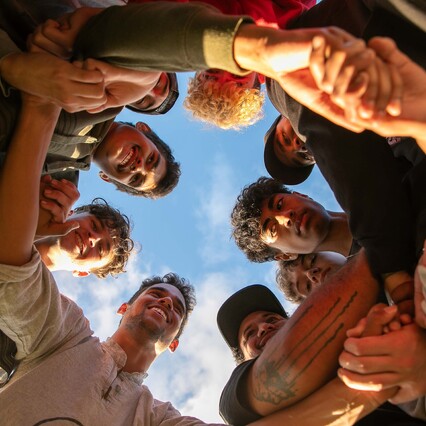Community rehabilitation
In its estimates, the Department of Corrections acknowledges that addressing trauma, and changing behaviour, has more than twice* the rate of success when undertaken in a community environment than within its prison-based programmes.
Community-based rehabilitation is particularly effective for young offenders aged under 20. This demographic is up to 88% more likely than any other to be resentenced to prison within five years, putting them at a crossroads between a life of engagement with our justice system, or a life of purpose, productivity, and wellbeing.*
The trade off:
Invest in community rehabilitation for 12 months at less than a third of the cost of incarceration, with a lifetime saving to society estimated to exceed $7.5 million.*
or
Incarcerate a young person for 12 months at a cost of more than $300,000*, with 77% re-sentenced within two years.

Community rehabilitation provides opportunities and benefits that incarceration cannot as individuals:
Maintain relationships with family and can break the cycle of intergenerational incarceration
Retain and improve employment opportunities
Gain immediate real-world feedback from the skills and knowledge they acquire
Avoid the stigma and debilitating ramifications of having been imprisoned
Are able to showcase positive models of change to others
The economic benefits of prevention programmes go beyond reduced criminal-justice costs, and span:
Healthcare (reduced requirement)
Education (reduced need for costly remedial approaches and support staff)
Social services (reduced requirement)
Employment (increased tax revenue)
ACC (reduced claims)
Savings from reductions in the number of crime victims, police, judicial and custodial services*

"We aspire to 'save' our rangatahi from incarceration and to simultaneously give them wings."
– Amelia Trotter, Programme Director

“…it’s normal here, people have family in the mob and in jail, it’s just ‘my dad’s in jail’.”
